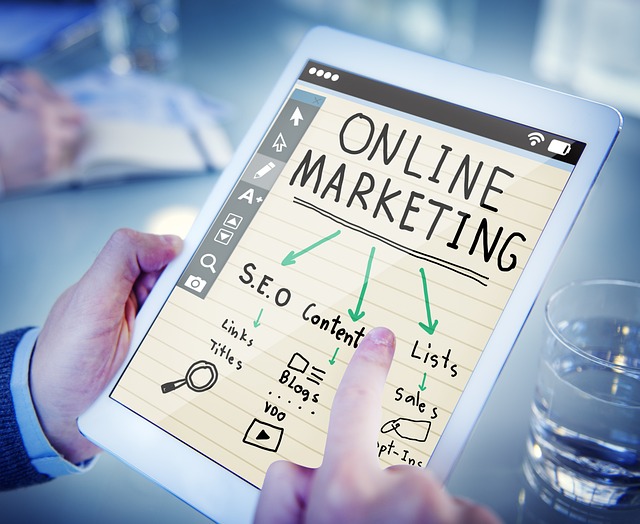In today's competitive business landscape, full-service digital marketing is crucial for success. It encompasses a multi-faceted approach, leveraging tools like market research, content creation, social media management, SEO, PPC, email campaigns, web design, and analytics to establish powerful online identities. By combining these services under one provider, businesses gain tailored strategies, cost-effectiveness, and unified brand messaging across all platforms, outperforming competitors in the dynamic digital era. Measuring success through key performance indicators (KPIs) like website traffic, engagement rates, and conversion metrics is essential for strategic adjustments. The evolving digital landscape, driven by AI and omnichannel integration, demands a holistic marketing approach to foster meaningful brand-audience relationships.
In today’s digital era, a robust Digital Marketing strategy is non-negotiable for business growth. This article provides a comprehensive guide to unlocking the full potential of your brand through Full-Service Digital Marketing. From understanding the concept and its benefits to deciphering key components and selecting the ideal agency, we’ll navigate you through each step. We’ll also explore essential metrics, emerging trends, and insights into measuring success in this dynamic landscape.
Understanding Full-Service Digital Marketing: A Comprehensive Overview

In the dynamic landscape of modern business, full-service digital marketing stands as a comprehensive strategy that encompasses all aspects of online promotion and brand representation. It goes beyond mere presence on the internet; it involves crafting and executing tailored campaigns that engage audiences across various platforms, from search engines to social media, email, and mobile channels. This holistic approach ensures brands not only attract but also retain customers by creating meaningful connections in today’s digital era.
Full-service digital marketing agencies offer a wide array of services designed to streamline the complex process of online promotion. These include market research and analysis, content creation and strategy, social media management, search engine optimization (SEO), pay-per-click (PPC) advertising, email campaigns, web design and development, and analytics tracking. By integrating these elements seamlessly, businesses can create a powerful digital presence that resonates with their target audience, drives conversions, and fosters long-term growth in an increasingly competitive market.
The Benefits of a Full-Service Approach for Your Business

In today’s digital era, a full-service digital marketing approach offers unparalleled advantages for businesses seeking to thrive in a competitive marketplace. By encompassing a wide range of services from a single provider, companies can benefit from streamlined strategies tailored to their unique goals. This unified front allows for a cohesive brand message across all channels, enhancing customer engagement and fostering stronger relationships. Full-service providers bring expertise in various digital marketing disciplines, including search engine optimization (SEO), social media management, content creation, email campaigns, and more, ensuring every aspect of your online presence is optimized.
Such an approach simplifies the process for businesses, eliminating the need to juggle multiple vendors with differing strategies. A dedicated team can create and execute a comprehensive plan, leveraging data-driven insights to adapt and refine strategies over time. This cost-effective method also streamlines budgets, as it consolidates expenses, and provides a consistent return on investment (ROI). With a full-service digital marketing partner, businesses gain access to innovative solutions that stay ahead of industry trends, ensuring they remain competitive and relevant in the ever-evolving digital landscape.
Key Components of a Successful Full-Service Digital Marketing Strategy

A successful full-service digital marketing strategy is a multifaceted approach that leverages various channels and techniques to maximize reach, engagement, and conversions. Firstly, comprehensive market research and understanding of the target audience are essential. This involves analyzing demographics, behaviors, preferences, and online activities to create detailed buyer personas. Such insights enable tailored content creation that resonates with specific segments, enhancing both relevance and conversion rates.
Secondly, a robust online presence is imperative, encompassing website optimization, search engine optimization (SEO), and social media management. A user-friendly, mobile-responsive website acts as the central hub, while SEO strategies ensure its visibility on search engines. Social media platforms then extend brand reach and foster engagement through strategic content sharing, community building, and influencer collaborations. Integrating email marketing further strengthens customer relationships by nurturing leads and promoting loyalty through personalized communications.
Choosing the Right Agency for Your Brand's Digital Journey

Selecting a full-service digital marketing agency is a pivotal decision for any brand looking to thrive in today’s online landscape. The right partner can transform your digital presence, but choosing among the multitude of options can be daunting. When navigating this process, keep in mind that every brand has unique needs and goals. What matters most is finding an agency that aligns with your vision and understands your target audience.
Look for agencies that demonstrate expertise in various aspects of digital marketing, from search engine optimization (SEO) and social media strategy to content creation and pay-per-click advertising. Their portfolio and case studies should showcase successful campaigns, highlighting their ability to adapt to evolving trends and deliver measurable results. Additionally, consider their communication style and approach to client relationships—a collaborative partnership built on transparency and regular updates is key to a successful digital journey.
Measuring Success: Metrics and KPIs for Full-Service Digital Campaigns

In the realm of full-service digital marketing, measuring success is paramount to understanding what drives engagement and conversions. Metrics and Key Performance Indicators (KPIs) are indispensable tools for gauging the effectiveness of campaigns across various digital channels. These include website traffic, which signifies the volume and source of visitors, and conversion rates that track how many visitors complete desired actions like purchases or sign-ups. Engagement metrics such as time on page and bounce rate offer insights into user interaction with content.
Social media metrics, including reach, engagement rate, and follower growth, are crucial for assessing the impact of social media campaigns. Email marketing KPIs, such as open rates, click-through rates, and unsubscribe rates, help optimize email strategies. Ultimately, attributing conversions to specific digital marketing efforts through tools like Google Analytics allows marketers to identify high-performing channels and tactics, enabling them to strategically allocate resources for future campaigns.
Trends Shaping the Future of Full-Service Digital Marketing

The ever-evolving digital landscape is presenting marketers with new challenges and opportunities, shaping the future of full-service digital marketing. Key trends leading this transformation include the rise of artificial intelligence (AI) and machine learning, which are enhancing content personalization and audience targeting. Marketers can now leverage AI to analyze vast amounts of data, understand consumer behavior patterns, and deliver tailored experiences across various channels.
Another significant trend is the integration of online and offline marketing strategies, creating a seamless omnichannel experience for consumers. This shift demands that digital marketers adopt a holistic approach, connecting customer interactions from social media and search engines to physical retail locations. By seamlessly merging these touchpoints, brands can build stronger relationships with their audiences and drive meaningful engagement.
